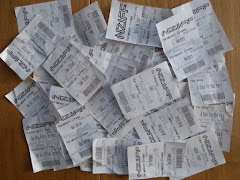If there is a fine line between serious documentary and comedy then Mads Brügger hasn't found it. Rather he weaves back and forth from wry observation and buffoonary to jaw dropping serious documentary revelations. The Ambassador takes investigative journalism to new territory in film making as Mads takes up the post of Liberia's diplomatic representative in the Central African Republic.
The fact that a Dane is representing one African country in an other, fails to raise an eyebrow in Bengui, is not due to extreme politeness in African culture. Rather it is due to the quaint custom of selling diplomatic posts. The access to government officials coupled with the diplomatic protection that an ambassador or consul has, makes a diplomatic post and passport a valuable commodity to an truly entrepreneurial businessman (or woman). This is especially true in countries where government ministers and officials control the access to valuable commodities such as diamonds, or where you might want to carry small items or large amounts of cash through customs without being searched. Small or poor countries can't afford to send diplomats every other country in the world and in some countries government salaries don't completely meet the lifestyle requirements of government officials. In these cases someone turning up at the right place with the correct amount of cash can purchase a diplomatic passport and accreditation from that country to some other country. Assuming these unpaid diplomats can turn this capital outlay and the access opportunities into a successful business deal or two, it is a win-win situation.
So many of these diplomatic posts and passports are available and so many people want them that there are agencies who act as middlemen and deal with the messy details - for a fee. The Ambassador starts with Mads Brügger approaching two such agencies in search of a suitable passport and credentials. The head of the first of these agencies (a paranoid Brit) bans cellphones and cameras from his meeting with Mads, introducing us to the secret camera work and recording that makes up much of this film. Luckily much of this secret footage is remarkably good and adds to the verisimilitude of the film.
Once armed with a diplomatic passport a slightly foppish "Mr Cortzen" turns up in Bengui as the Honorary Consul for Liberia. Where this "Cinderella of diplomacy" makes contacts with the government, fellow diplomats and other local characters. Some of these are happy to advise or assist the new diplomat in the "do"s and "don't"s of operating in the Central African Republic. This brings up the secondary theme of this film. The interference that foreign governments and foreign companies have over third world countries. The Central African Republic imports a lot of low tech goods that could be manufactured locally, people who have tried to set up factories to manufacture such goods for the local market hit a series of obstacles that eventually bankrupt them. The people that Mads talks to claim these problems are due to outside interference by companies who currently make money out of the status quo. On a larger scale France is accused of interfering at a level varying from not passing on information that might protect the country from military invasion to fomenting coups and murdering people who cross them. This is a subject that is big enough to justify its own separate documentary.
Mads attempts at getting involved in the diamond trade cost him a lot of money in "envelopes of happiness" and illustrate the layers upon layers of people involved in this murky industry. He uses performative journalism, in his own words "instead of disguising as a fly on the wall observing neutrally, I dress for my part and interact as an agent provocateur". This technique gets him a lot closer to his subjects and captures them in their natural environment, in way that traditional journalism almost certainly couldn't.
Ian's rating 5/5
An interview with Mads Brügger.
Saturday, August 18, 2012
Subscribe to:
Post Comments (Atom)



If you follow the link above you'll find a 16 minute video that confirms the strategy Mads Brügger talks about in the documentary. Don't take my word for it, take 16 minutes follow the link and watch the video.
ReplyDelete